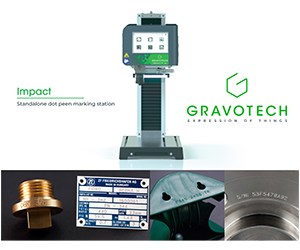Annual Gifts: Now Improved To Beat The Tax Collector
‘Improved' is a common addition to the labels of many store-bought products. Well, this time the product is annual gifts and improved is the perfect word.
‘Improved' is a common addition to the labels of many store-bought products. Well, this time the product is annual gifts and improved is the perfect word.
Lifetime gifts—usually to younger family members—are one way to guarantee cutting the IRS' share of your wealth. Remember, this year, the gift and estate taxes can go as high as 50 percent.
The following are the five most frequently asked questions about gift giving—asked by attendees at my wealth transfer/business succession/estate planning seminars—as well as my answers.
Q: How much can I give to one person tax-free?
A: Here comes the improved part. The first $11,000, called the ‘annual exclusion,' of gifts made each year by the donor to each donee is gift-tax-free. The $11,000 (up from $10,000 last year) is a welcome number. A gift by one spouse can be treated for gift tax purposes as though it were made one-half by each spouse—meaning that each spouse may make a gift of $11,000. This is called ‘gift-splitting,' and it doubles the annual exclusion for married couples.
Example: Ed gives $22,000 to his son Ted. Ed and his wife Edna elect gift-splitting, which means that the gift is treated as if Ed and Edna each made a separate $11,000 gift to Ted. Both gifts are entitled to the $11,000 annual exclusion and are tax-free.
Q: Are all gifts of $11,000 or less tax-free?
A: No. To qualify for tax-free treatment, to gift must be a gift of a ‘present interest.' A ‘future interest' negates the annual exclusion.
Example 1: Jed has three children. Every year Jed gives each child $11,000 in cash. These are gifts of a present interest, meaning that the kids can spend, save or squander the money now, and Jed is entitled to the annual exclusion.
Example 2: The facts are the same as in example 1, except that the cash is put in a trust with instructions to the trustee to accumulate the income and give each child everything in the trust in 5 years. This is a future interest. There is no annual exclusion. All the gifts are subject to gift tax.
Q: Must I pay the gift tax in cash?
A: No. You can make up the $1 million in lifetime gifts—all the gifts you make during your life, in excess of the $11,000 annual exclusion(s), are added together—that can be paid with a special credit created by law.
Example: Edith could give her son Fred $1,011,000 in 2002 without owing any tax that requires a cash payment. Married couples can double the figure.
Q: What can I give away?
A: Anything you own—the family business, bonds, real estate, an interest in a partnership, and so on. The amount of the gift is based on the fair market value of the property on the date the gift is given. Your cost or how you acquired the property is totally immaterial.
Q: Can I deduct the gift?
A: No, no, no! Despite what you may hear elsewhere, neither the gift nor the gift income to the recipient is deductible.
Gift giving is a superb tax-planning tool. So use it to improve your tax savings. However, to maximize your tax savings, gift giving should be coordinated with an overall lifetime tax plan, as well as a separate estate plan.
For further information the following companion special reports are available from the Book Division of Blackman Kallick Bartelstein, LLP: 1) Pay Zero Estate Tax, 2) The Secret of How the Rich Create Wealth and Income Without Risk and 3) How to Triple Your Pension, Profit Sharing or IRA Value.
Read Next
The Cut Scene: The Finer Details of Large-Format Machining
Small details and features can have an outsized impact on large parts, such as Barbco’s collapsible utility drill head.
Read More3 Mistakes That Cause CNC Programs to Fail
Despite enhancements to manufacturing technology, there are still issues today that can cause programs to fail. These failures can cause lost time, scrapped parts, damaged machines and even injured operators.
Read More










.png;maxWidth=300;quality=90)







